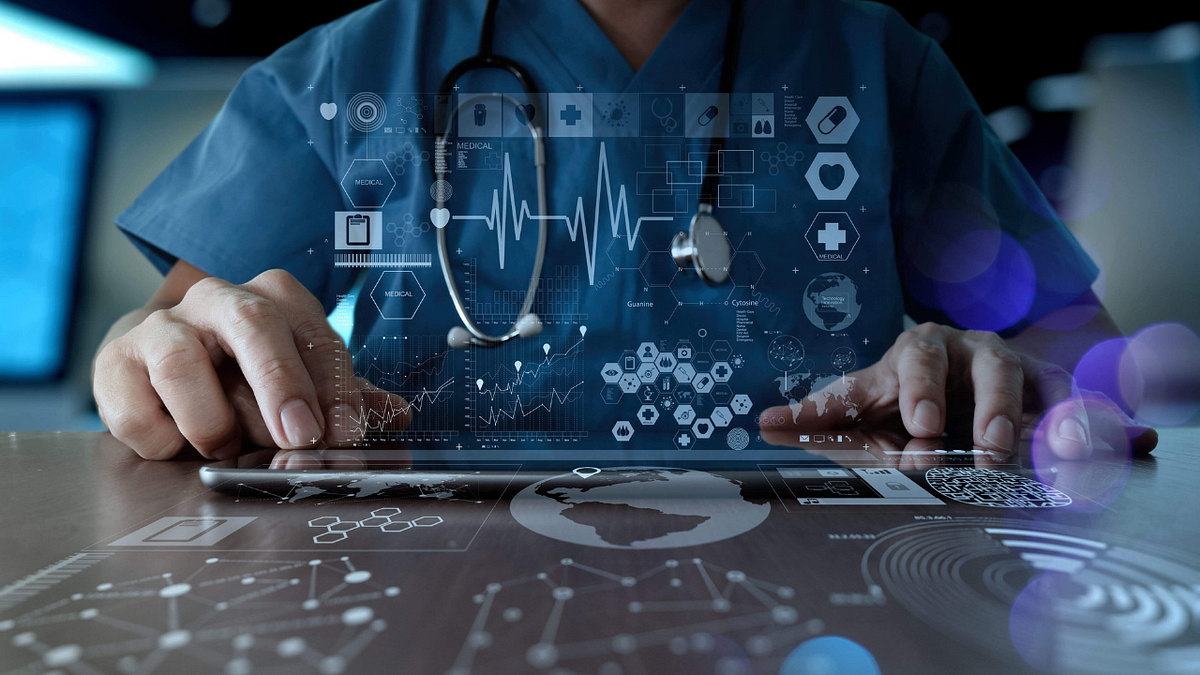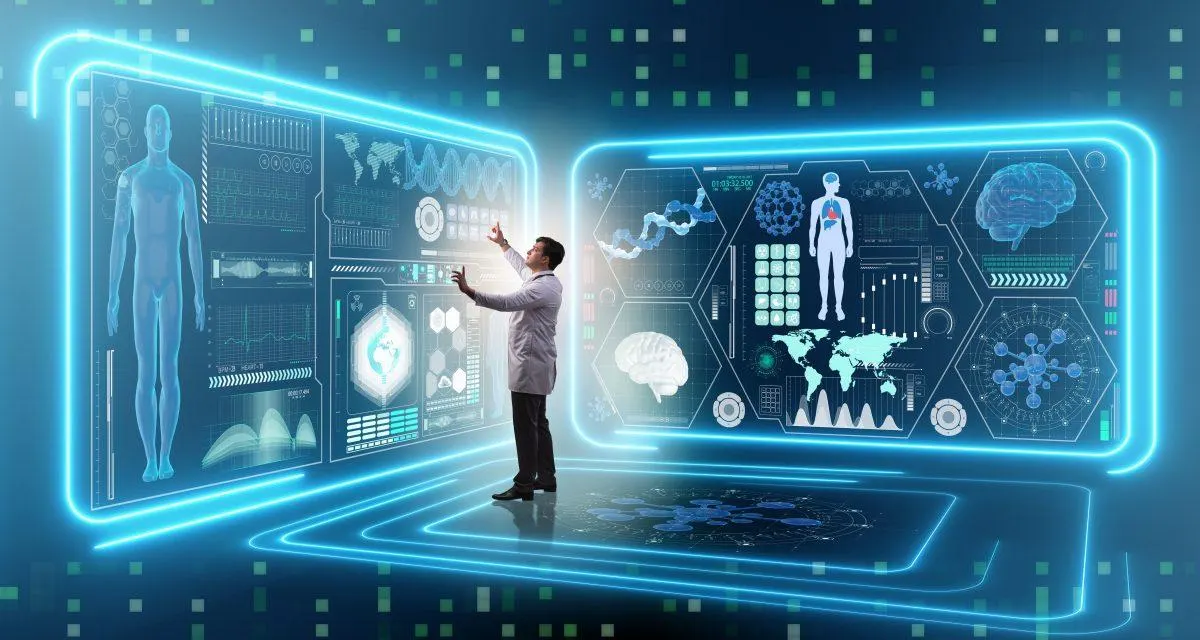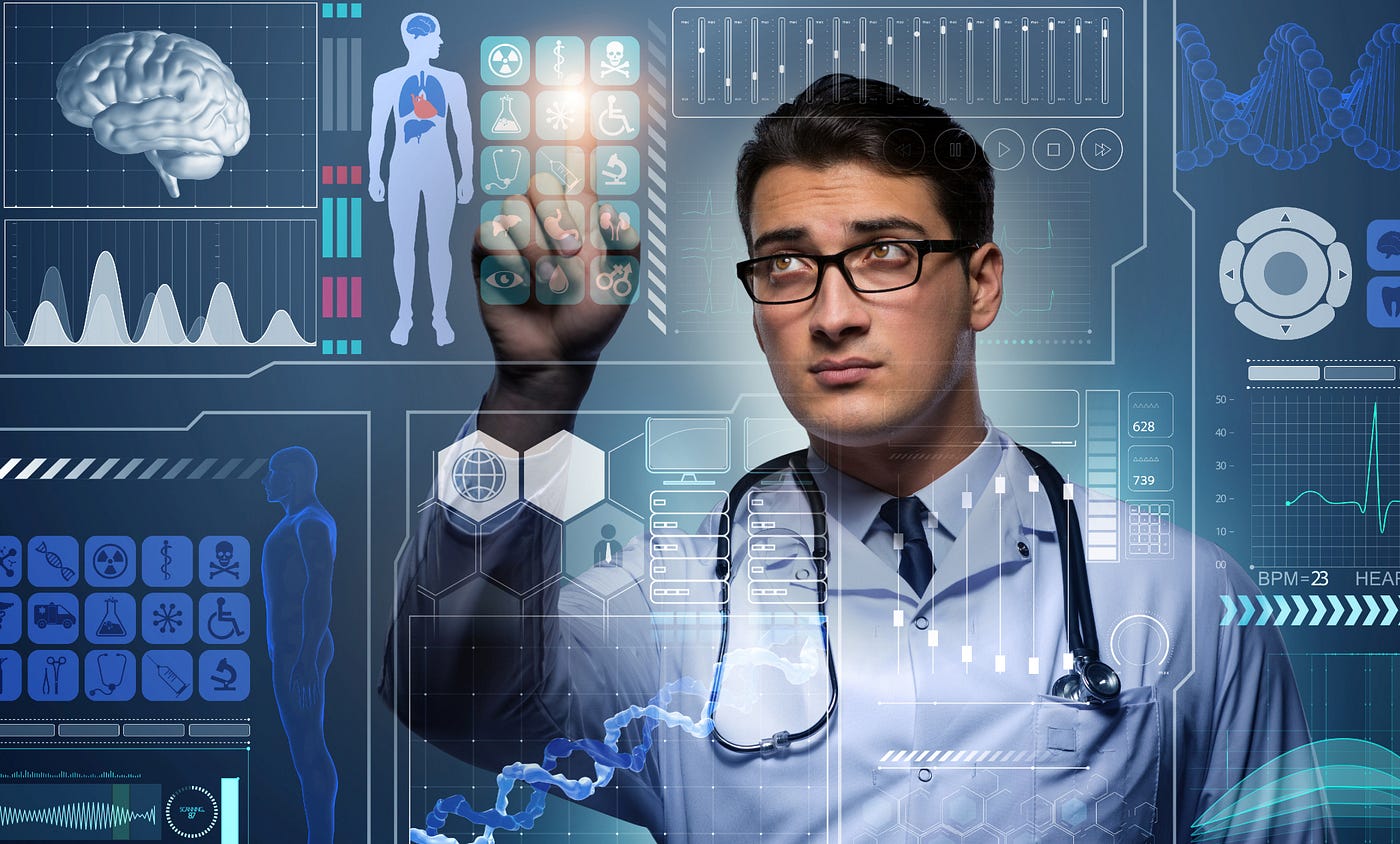
Healthcare Solutions
Empowering healthcare providers with innovative technology solutions for better patient care and operational efficiency.
Key Features
Patient Management
Streamline patient records and appointments
Data Security
HIPAA-compliant data protection
Analytics
Insights for improved healthcare delivery
Telemedicine
Remote patient care and monitoring

Enhancing Operational Efficiency with AI & Automation
Enhancing operational efficiency with AI and automation is revolutionizing industries by streamlining processes, reducing manual labor, and improving accuracy. In business operations, AI-driven systems can automate repetitive tasks, such as data entry, scheduling, and customer service, allowing employees to focus on higher-value activities that require critical thinking and creativity. Automation minimizes human errors, accelerates workflows, and boosts productivity by enabling continuous operation without the constraints of time or fatigue. In areas like supply chain management and logistics, AI optimizes resource allocation, forecasts demand, and automates inventory control, resulting in reduced operational costs and faster delivery times. Moreover, AI-powered analytics help organizations identify inefficiencies, predict trends, and make data-driven decisions in real time. In customer-facing roles, AI chatbots and virtual assistants provide instant, personalized service, improving customer satisfaction while reducing operational overhead. Ultimately, by leveraging AI and automation, businesses can achieve greater agility, scalability, and profitability, staying competitive in an increasingly fast-paced digital world.
Efficiency and Workload Management
IT systems revolutionize healthcare efficiency by streamlining administrative tasks, optimizing patient scheduling, and enhancing resource allocation. Electronic Health Records (EHRs) centralize patient information, reducing errors and improving care coordination. Automated workflows minimize paperwork, freeing up healthcare professionals to focus more on patient care.
Telemedicine platforms, enabled by IT, expand access to care, reduce wait times, and allow for remote monitoring of chronic conditions. AI-powered diagnostic tools assist in faster, more accurate diagnoses, while predictive analytics help in proactive patient care management and hospital resource planning.


Data security and Analytics
Data security and analytics are two fundamental pillars for modern organizations, particularly as the volume and complexity of data grow exponentially. Data security involves safeguarding sensitive information from unauthorized access, breaches, and cyberattacks, ensuring the confidentiality, integrity, and availability of critical data. With the rise of cyber threats, organizations must employ robust security measures such as encryption, multi-factor authentication, and network monitoring to protect their digital assets. Strong data security practices are essential not only for maintaining customer trust but also for complying with regulatory standards like GDPR and HIPAA. Advanced analytics techniques, including machine learning and predictive modeling, allow organizations to identify trends, forecast future outcomes, and even detect anomalies that may indicate security vulnerabilities or potential breaches. The integration of security with analytics creates a proactive approach to threat detection, where real-time data analysis can help preempt attacks, mitigate risks, and enhance overall security posture. Together, data security and analytics form a comprehensive strategy for managing and protecting valuable data assets while extracting maximum value from them.
The Role of IT in Healthcare
Information Technology (IT) plays a crucial role in transforming healthcare by enhancing the quality, efficiency, and accessibility of medical services. It enables healthcare providers to streamline operations, improve patient care, and reduce costs through the implementation of advanced systems such as electronic health records (EHRs), telemedicine, and cloud-based data storage. These technologies ensure that patient information is readily accessible, secure, and easily shareable across different healthcare professionals, fostering collaboration and reducing the risk of medical errors.
IT also facilitates real-time monitoring and data analytics, empowering healthcare providers to make more informed, data-driven decisions that improve diagnosis accuracy and treatment outcomes. Furthermore, IT enhances patient engagement through digital health tools, such as mobile health apps and wearable devices, allowing individuals to take a more active role in managing their health. In an era of growing healthcare demands, IT is indispensable in optimizing workflows, ensuring regulatory compliance, and advancing medical research, ultimately leading to better patient care and operational excellence.
Benefits of Our Healthcare Solutions
Improved Patient Outcomes
Better health outcomes through data-driven care.
Cost Savings
Streamline operations and reduce overhead costs.
Future-Proof Technology
Stay ahead with the latest healthcare innovations.